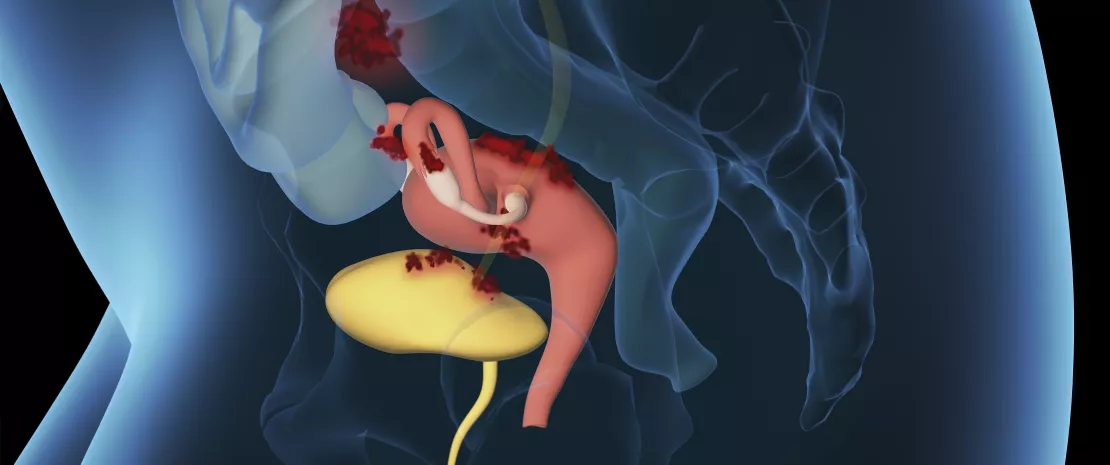A short chain fatty acid from the intestinal microbiota to fight endometriosis?
Endometriosis considerably changes the quality of life of women suffering from the pain and infertility it causes. Although it affects 1 in 10 women, its mechanisms are poorly understood and treatments for it are unsatisfactory. A recent study1 in animals opens new perspectives by showing that butyrate, a short-chain fatty acid produced by the intestinal microbiota, slows the development of endometriotic lesions.
Lay public section
Find here your dedicated section
Sources
This article is based on scientific information

About this article
The theories about the origin of endometriosis have not yet been clarified. According to the hypothesis which is prevalent today, fragments of the endometrium migrate out of the uterus into the peritoneal cavity during retrograde menstruation and implant themselves into the surrounding tissues. However, although 90% of women have retrograde menstruation only 10% have endometriosis. In addition, the current treatments for the disease have side effects and do not prevent relapses.
In order to offer women new treatment solutions, other factors contributing to the alteration of the peritoneal environment and the development of lesions must be identified. In this context the intestinal microbiota has aroused the attention of researchers. In fact, the intestinal microbiota of women suffering from endometriosis presents a lower alpha diversity and a changed bacterial composition compared to women without endometriosis. In addition, the metabolites produced by the colonic flora of a mouse model for endometriosis are different to those of the control mice. This is important because it is through the metabolites from the transformation of dietary fibres that the intestinal microbiota provides its benefit to the human body. Amongst these, the short-chain fatty acids (SCFA), such as butyrate, acetate or propionate, in particular have anti-proliferation and anti-inflammatory effects. The authors of the study published in Life Science Alliance therefore considered the role of these SCFAs in endometriosis in vivo on a mouse model for endometriosis and in vitro on cells of endometriotic lesions.
Butyrate inhibits the growth of lesions by activating several mechanisms
The initial results show that endometriosis upsets the balance of the intestinal microbiota of mice by causing a reduction in the production of butyrate. The team also observed that butyrate (and not other SCFAs such as acetate or propionate) inhibits the growth of endometriotic lesions. Butyrate acts through at least three mechanisms: by activating membrane receptors coupled to G-proteins (GPCRs): GPR43 and GPR109A, by inhibiting the enzyme histone deacetylase (HDAC) and activating Rap1GAP (protein activating GTPase Ras-proximate-1). Rap1GAP blocks the Rap1 signal pathway involved in the proliferation, migration and adhesion of cells. It is already known to be a tumour suppressor, including in endometrial cancer.
New studies must now determine whether, in women suffering from endometriosis, the faecal butyrate level is lower than in women who do not suffer. If this is the case, different approaches intended to prevent the development of lesions could be tested: diet, butyrate analogues, butyrate-based supplements or probiotics inducing the production of butyrate.
Recommended by our community

"Thanks for this article!!" - Comment translated from Diome🌺 (From Biocodex Microbiota Institute on X)






